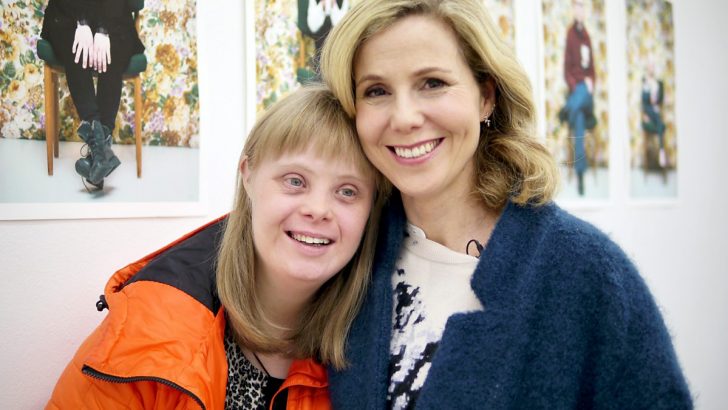Our attitude towards the disabled is something we must seriously consider as we debate abortion, writes David Quinn
One of the issues that has given rise to the very strong possibility of an abortion referendum in the next year or two is that of unborn babies diagnosed with a life-limiting disability, also known as a ‘fatal foetal abnormality’, even though this is not a medical term.
It strikes many people as unreasonable that a woman who is told her baby will not survive long past birth should be expected to carry her fatally disabled baby to term. A strong focus on this issue by pro-abortion campaign groups and large sections of the media helped to bring about the establishment of the Citizens’ Assembly which has now spent several weekends over several months considering whether or not to recommend the holding of a referendum to repeal the Eighth Amendment, that is, the pro-life section of our Constitution.
What’s notable since the Assembly has begun its proceedings is that delegates are now hearing arguments for abortion being legally provided for here in Ireland on grounds much broader than ‘simply’ the ‘fatal foetal abnormality’ ground.
Impact
Either directly or indirectly several of the speakers at the Assembly have argued for abortion to be permitted here on similar grounds to in Britain, which would mean we would de facto have abortion-on-demand. This would disproportionately impact on disabled unborn children because they are far more likely to be aborted than are able-bodied unborn children.
Last weekend in Oxford, the Anscombe Bioethics Centre organised a conference called ‘Abortion and Disability’ which could hardly have been more relevant to the Irish debate.
The Anscombe Bioethics Centre is a Catholic bioethics body set up by the Catholic bishops of England and Wales in 1977. The Irish hierarchy also supports the organisation. It advises all interested parties on the Catholic response to various bioethical issues, including, obviously, abortion.
The choice of topic of last weekend’s conference was prompted in part by the fact there is a growing awareness of the disproportionate impact abortion has on disabled unborn children.
A Bill is currently being debated in the British parliament that has been tabled by Lord Shinkwin who himself suffers from a disability. It is called the Abortion (Disability Equality) Bill.
Lord Shinkwin points out that in Britain, abortions are illegal after 24 weeks except on certain grounds. One of those grounds is if the unborn child can be shown to have a disability. Lord Shinkwin says this exemption is clearly discriminatory because it means that disabled unborn babies can be freely killed after 24 weeks, whereas abled-bodied unborn babies cannot.
As he pointed out when he first introduced his bill late last year: “It is illegal for an unborn human being to have their life ended by abortion beyond 24 weeks, but if they have a disability their life can be ended right up to birth by law. Where is the consistency, the justice or the equality in that?
“If anyone thinks such obvious discrimination is acceptable, I respectfully invite them to imagine the outcry if the same were applied to skin colour or sexual orientation. Such discrimination would rightly be regarded as outrageous.”
A BBC documentary called A World Without Down Syndrome aired last year. It was presented by comedian and actress, Sally Philips, and it caused widespread shock when it conveyed to the wider public the fact that 90% of unborn babies in Britain diagnosed to have Down Syndrome are aborted. In Iceland, the figure is 100%.
Last weekend’s Oxford conference heard from, among others, renowned legal theorist, Prof. John Finnis. He reminded delegates how he had predicted many years ago that British law would allow, among other things, for unborn babies with something as minor as a cleft palate to be aborted. He was widely accused of scare-mongering at the time by, among others, David Steele, the man behind the liberalisation of Britain’s abortion law in 1967.
But Finnis has since been proven to be correct. Unborn babies can indeed be aborted even for having a correctable defect like a cleft palate.
Caroline Simons of the Pro-Life Campaign also addressed the conference. She acquainted delegates with the state of the debate in Ireland, including what is happening at the Citizens’ Assembly.
One of the most interesting talks of the day was delivered by John Wyatt, Professor of Ethics and Perinatology at University College London.
He has spent a great part of his career dealing with couples who have been told their unborn baby suffers from a disability that may, in some cases, eventually kill the baby.
Prof. Wyatt, a Christian, also questioned the use of terms that seem to suggest a severely disabled baby will die very soon after birth. He pointed out that as medicine improves the life expectancy of babies with Edwards’ Syndrome grows longer all the time. Yet in debates, many people still insist that Edwards’ Syndrome is invariably a ‘fatal foetal abnormality’.
He spoke about the pressure parents sometimes come under from doctors to abort a disabled baby. This might not be direct advice to abort the baby, but it could come in the form of advice that paints a wholly negative picture of life for the baby and its family if the baby is born.
Finally, the conference heard moving testimony from women who have Down Syndrome children, and of the joys and challenges that having Down Syndrome children can bring.
A 21-year-old woman, who herself has Down Syndrome also spoke. This humanised what this whole debate is about.
The conference made clear that our attitude towards the disabled is something we must seriously consider as we debate abortion. We have to be made aware that liberalisation of Ireland’s abortion law will almost certainly have a disproportionate negative impact on disabled unborn children. Is this something we really want? Is that really humane?


 David Quinn
David Quinn Sally Phillips with her son Olly
Sally Phillips with her son Olly 